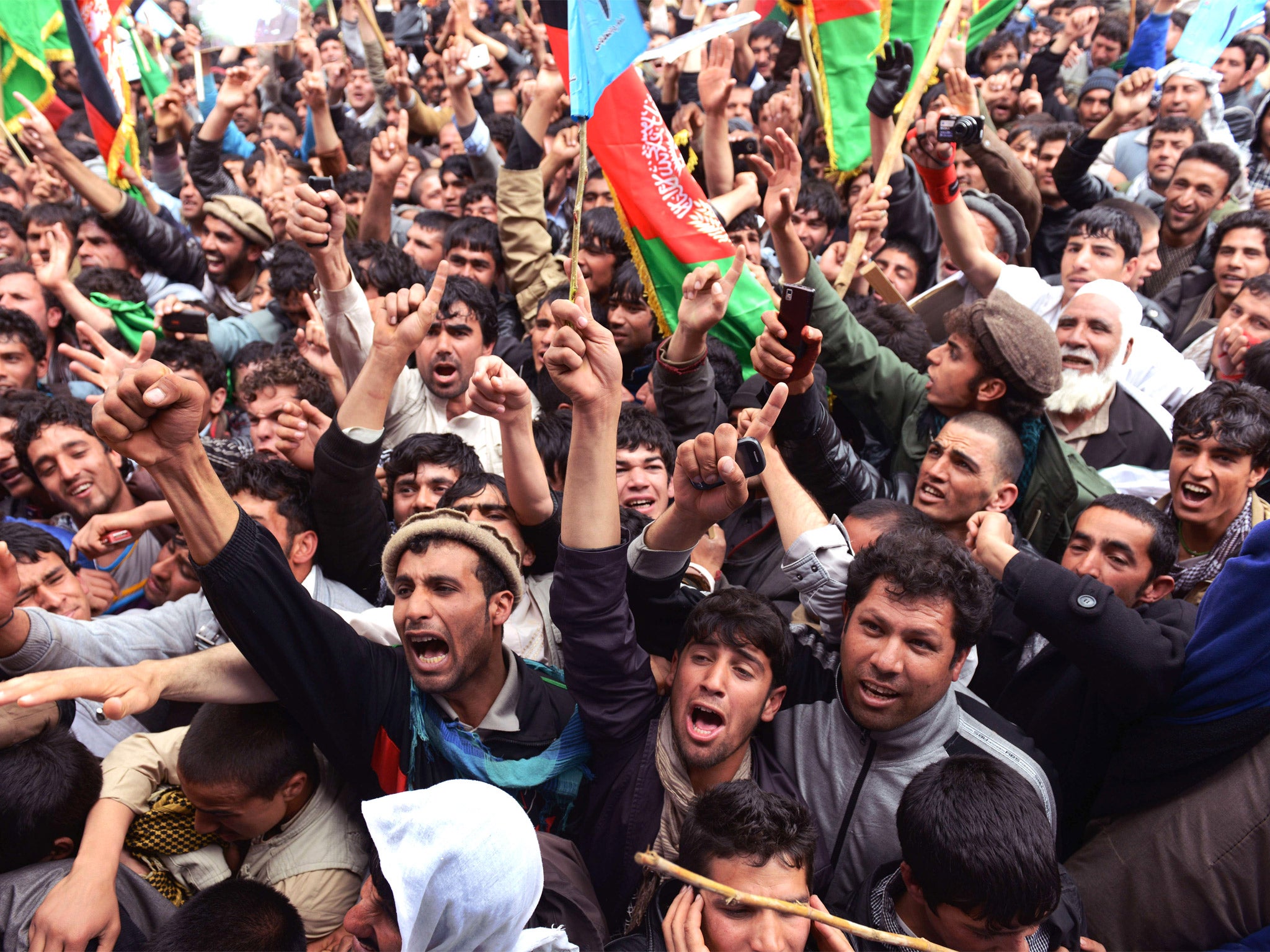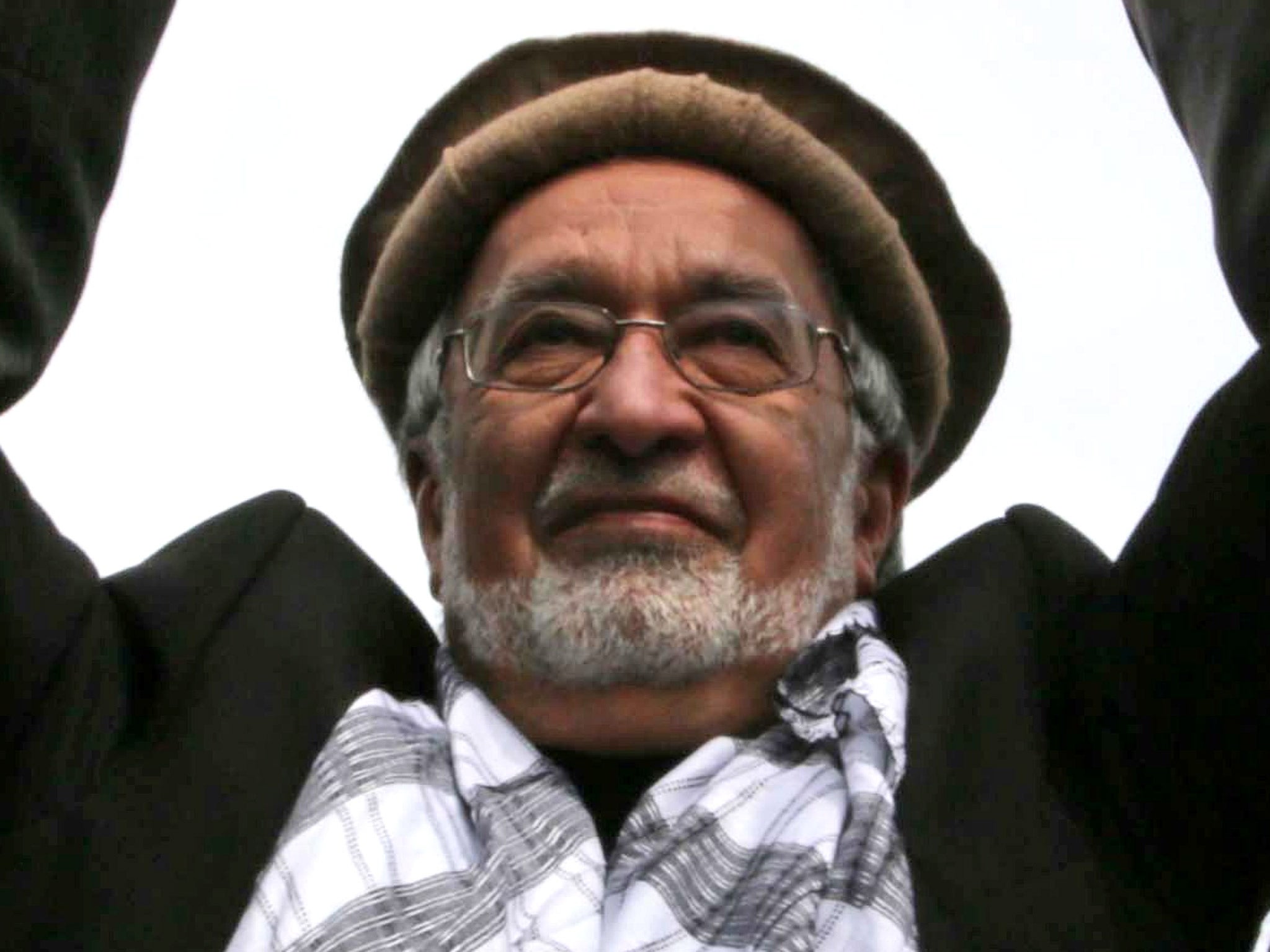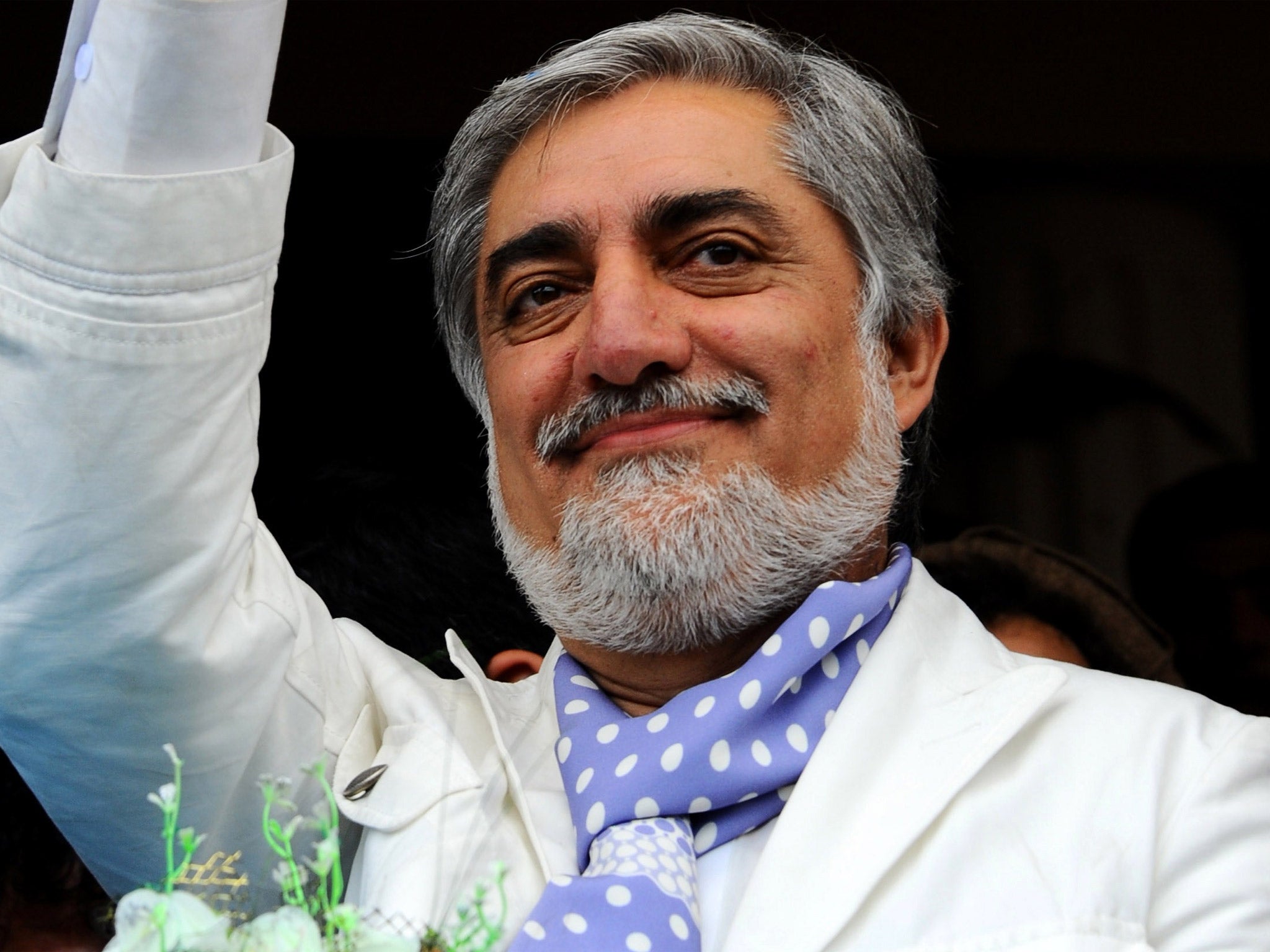Afghan elections: Better connections to candidates, more educated youths and live televised debates mean this time the people are ready to make their voices heard
Ahead of crucial presidential elections, May Jeong follows two frontrunners from Khost to Kandahar, and finds voters more fired up than ever before

With just three days left in Afghanistan’s presidential campaign, Abdullah Abdullah arrives in Kandahar for one of his last rallies before the election. A cheering mass of supporters greeted him at the airport. The convoy of armoured SUVs shuttled Dr Abdullah – along with his phalanx of advisers, security detail, and journalists – through the city, leaving a trail of dust. The convoy swelled in size along the way, as more joined. The resulting parade was a spectacular display of political mobilisation, unprecedented in Afghanistan, never mind Kandahar, the birthplace of the Taliban.
As Afghanistan heads to the polls on Saturday, there has been much lament over how little has changed since the previous presidential election in 2009: the steady drum beat of insurgent attacks stubbornly persists, concerns over fraud continues to plague the nation. And yet, what is decidedly different is the heightened level of political participation across the country.
Afghan campaigns today increasingly mirror those in the West: rallies and debates have been introduced this year, and have been enthusiastically received.
Afghanistan’s financial future hinges on it being relatively free of dispute. The country is at a critical moment militarily, as Nato forces plan to withdraw by the end of the year. It leaves behind an insurgency that is poised to continue.
Despite an economy that the World Bank has warned will shrink as the US and other Western powers begin their military withdrawal, the country’s 50 national and regional television channels are thriving ahead of the election. Tolo TV, the leading network, claim the televised debates reach millions.
Dr Abdullah’s campaign organiser for the southern provinces, Nimatullah Arghandabi, believes the simple act of campaigning in Kandahar is a remarkable thing. “This time, you see people in the thousands. The public has been educated about how democracy works, and how elections work. That is the greatest difference.”
The two frontrunners in the race pose different paths for the country’s future. Dr Abdullah is considered an opposition leader whose victory would mean a departure from President Hamid Karzai’s influence. Dr Ashraf Ghani Ahmadzai is a technocrat and a reformer. He is the likeliest to disband patronage networks that have plagued Afghan politics. Third in line, according to a poll by ATR Consulting, is Zalmai Rassoul, who is considered close to the departing president.
By mid-morning, the stadium in Kandahar is nearly full. As Afghan Border Police watch over, the crowd is steadily whipped up into a state of mania. Dr Abdullah’s stentorian voice holds the crowd captive, a statesman giving a stump speech to an electorate, all inchoate concepts in the new Afghanistan.
Back in Kabul, the other frontrunner, Dr Ghani, is hosting a rally at Ghazi stadium. The 35,000 capacity arena fills up and in his slightly nasally voice, the candidate tells them: “All over Afghanistan people are participating in our campaign and this shows the real will of the people.” Dr Ghani speaks of freedom, of justice, of anti-fraud measures.
After 30 minutes the speech ends, and almost immediately, men begin clambering towards the chain link fence to get closer tohim. Riot police wielding batons force them back. Outside, Ghani fans flood the streets. All the women supporters are ushered around the corner, where buses wait to take them home.
Mariam Wardak, a youth organiser, attributes the ebullience of this election to more young people getting involved. “Compared to the last election, we have more educated youths wanting to get involved,” she said. They have since graduated from universities, she added, and want to use their accumulated confidence and experience in something worthwhile.
Wardak also believes the televised debates are another important addition to the election this year.
The debates, Wardak said, “gives you a sense of who the candidates are. You hear their vision straight from their own mouth, instead getting it filtered through gossip or word of mouth, which usually happens here.”
These American-style debates, along with the aggressive campaign coverage by the country’s fledgling independent media, are some of the most visible signs of progress in the country, she says.
“Debates, rallies, all these things, have played such an important role in getting us to understand who the candidates are, but also they have helped us connect with them,” Wardak said. “That is new and that is exciting.”
The contenders
The American-trained anthropologist returned to Afghanistan after the Taliban were ousted and held various government posts, including finance minister. He won about 4 per cent of the vote in the last presidential election in 2009. (Picture credit: AP)

Zalmai Rassoul
The former Foreign Minister has been one of the current President’s closest confidants. Critics say Rassoul would lack the strength to make a break from the old administration, which has been accused of perpetuating corruption and inefficiency. (EPA)

Abdullah Abdullah
A former ophthalmologist-turned-fighter of Soviet forces in the 1980s, Abdullah dropped out of a run-off against Karzai in the 2009 election. Abdullah was Foreign Minister until his abrupt dismissal in 2006. His base of support is in the ethnic Tajik community. Reuters (Getty)
Join our commenting forum
Join thought-provoking conversations, follow other Independent readers and see their replies
Comments
Bookmark popover
Removed from bookmarks